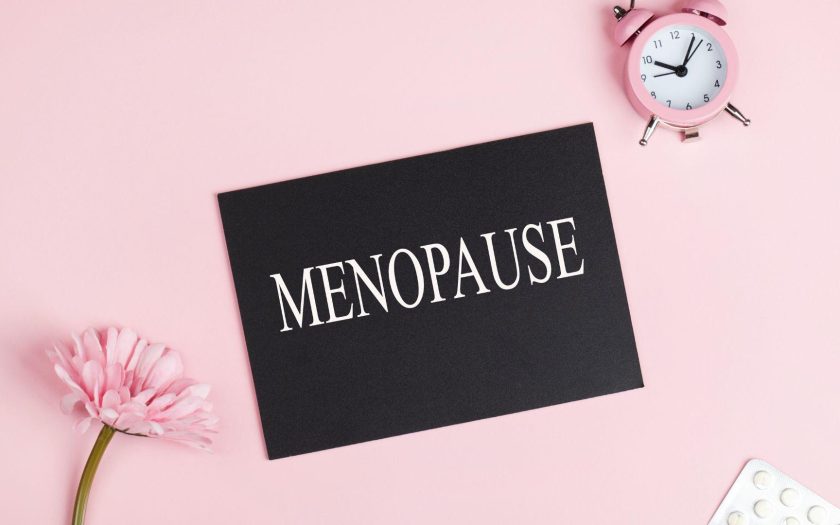Fear of hormone therapy.
According to studies, most women experience fear when prescribed certain medications due to persistent myths that have taken root in society over the years. However, it’s important to understand that modern hormone therapy is not the same as it was 20–30 years ago. Today, treatment is selected in a highly personalized way — taking into account a woman’s age, health condition, symptoms, and even her lifestyle. For example, a woman with intense hot flashes and insomnia may need a low-dose form in a patch (such as Estradot) or gel that gently helps to stabilise the condition. For others, it may be better to take certain medications (for example, CONJYA, Ovestin, Progynova, Premia) that will help reduce unpleasant symptoms and improve quality of life. Hormonal support is not a magic pill or a one-size-fits-all solution, but it is an effective tool that, with the right approach, helps to gently go through changes, restore a sense of inner balance, calmness, and energy. That’s why it’s better to consult a doctor in time to find suitable methods to improve well-being during this stage of life.
Ignoring physical activity.
During this period, metabolism slows down, the endocrine system changes, muscle mass decreases, and the risk of weight gain — especially in the abdominal area — increases. But instead of staying active, many women choose a sedentary lifestyle. Yet movement is one of the most effective ways to improve well-being during menopause. Physical activity helps the body produce natural “feel-good” chemicals, improves sleep quality, supports heart health, reduces anxiety, and stabilizes mood. Even 20–30 minutes of walking a day or light yoga can make a noticeable difference. For instance, a woman who chooses a daily walk in the fresh air over watching the evening news may, after a few weeks, experience fewer hot flashes and greater focus at work. It’s important to remember that physical activity during menopause isn’t about exhausting yourself — it’s about care: smart, gradual, and consistent care.
Overworking at home or at work.
Many women during menopause try to maintain full-time work schedules, care for their families, and manage household responsibilities — all while ignoring the signals their bodies are sending about fatigue and burnout. In doing so, they forget that this is exactly the time when their bodies need support — both physical and emotional. The changes happening now aren’t a sign of weakness; they are a natural part of life. But if you don’t slow down, delegate responsibilities, or take time for yourself, it can lead to deeper exhaustion, mood swings, insomnia, and even health problems. For example, a woman used to work overtime while also managing her home might begin to experience constant fatigue, irritability, and difficulty concentrating. During moments like these, it’s crucial to learn to say “no,” ask for help, reassess priorities, and not be afraid to take a break. Self-care — not self-sacrifice — is what helps you navigate this period more gently and maintain both emotional and physical well-being.
Ignoring changes in cardiovascular health.
After age 45, the risk of heart and vascular issues increases for women — yet many underestimates this fact. Research shows that protective substances in the body decrease during this time, raising the risk of high blood pressure, elevated cholesterol, metabolic disorders, and even stroke or heart attack. Women often attribute symptoms like fatigue, shortness of breath, or rapid heartbeat to aging, stress, or overwork — without seeking medical advice. But these can be early signs of cardiovascular changes. For instance, frequent headaches, ringing in the ears, or pressure in the chest are warning signals that the heart may need attention. Regular checkups, monitoring blood pressure, cholesterol, and glucose levels are not excessive precautions — they are essential steps toward long-term health. Taking care of your heart during menopause means caring for your quality of life now and in the years ahead.
Neglecting proper skincare.
With the onset of menopause, a woman’s skin undergoes significant changes: it loses moisture more quickly, becomes less elastic, and the rate of cell renewal slows down. This can lead to dryness, fine lines, loss of tone, and a dull complexion. Yet many women continue using the same skincare products they used in their 30s — or none at all — believing that changes in appearance are inevitable. In reality, menopausal skin needs a completely different approach: deep hydration, restorative ingredients, sun protection, and consistent nourishment. For example, serums with hyaluronic acid, creams with antioxidants or vitamin C can significantly improve skin texture and appearance. In addition, it is also important to visit a dermatologist or cosmetologist during this period to find an effective care programme adapted to your age.

